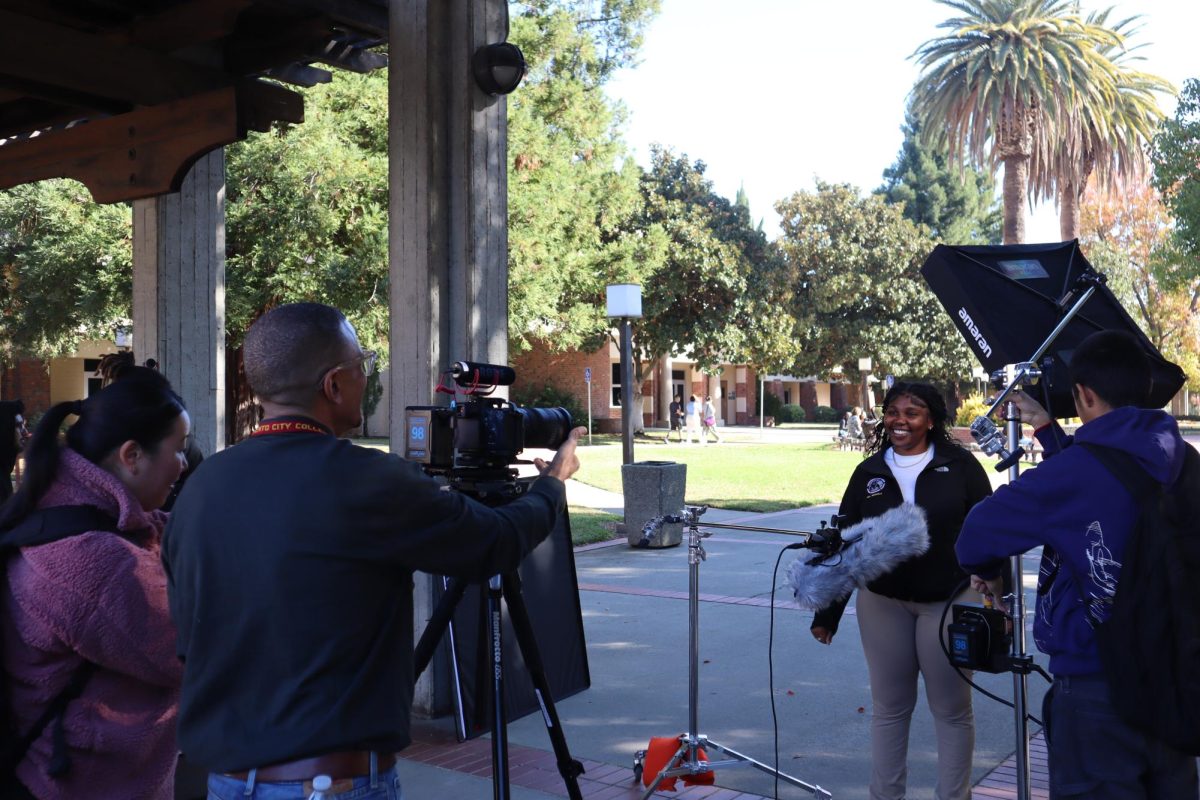Community college has traditionally been a place of exploration and discovery when it comes to students finding what they want to do with their lives, but in today’s world that traditional institution is quickly changing because of new policies and rules coming down from government and district officials, including the loss of priority registration for some students.
Those policy changes can make getting a quality education, finishing one’s degree or transferring to an upper-division campus more difficult for some students. This is the case for Gavin Fielder, president of the City College Clubs and Events Board and mechanical engineering major.
According to City College Associate Vice President of Enrollment and Student Services Debra Luff—in compliance with the Student Success Act of 2012 (SB 1456)—any student who is on academic or progress probation level two (and has too many W’s or a GPA lower than 2.0) or who has completed a total of 90 units within the Los Rios district will now lose priority registration and be switched to open enrollment.
In addition, first-time college students who enrolled in February 2014 or later are now required to complete a three-step process—which includes participating in an online orientation via D2L, taking assessment tests for placement into English and mathematics, and meeting with a counselor to create an individual student education plan (iSEP)—to qualify for priority registration.
These students will continue to be required to work their way up through priority levels, said Admissions and Records Supervisor Kim Goff, but unless they complete all three steps, they will not be eligible for priority registration.
Students pursuing high-unit majors can appeal each semester to keep priority registration, which is what Fielder said he had to do. He also had to set up an iSEP to show that he is on track to completing his educational goals in a timely manner.
“I’m definitely not a normal student,” said Fielder. “I’ve actually changed my major five times. I didn’t really come in knowing what I wanted to do. I kind of fooled around a lot. In addition to all the classes took before that weren’t really relevant [to my current major], I now have a lot of units to go.”
Luff said that students affected by these changes will be notified via their Los Rios email accounts. She added that the college is working to make sure everyone is aware of the new policies.
“[We’re] following up with phone call and emails and trying to get it in Facebook and all those social media avenues that we have,” said Luff.
There are a few other rules when it comes to the 90-unit cap priority registration policy, but according to Goff, there are several options for students who find themselves in this situation.
Any classes below the 100 level are not counted as part of the 90 units completed, Goff said. If a student is one semester away from graduating or transferring, he or she can appeal to keep priority registration. If student is on academic or progress probation, he or she will have to petition and show that progress is being made toward bringing up his or her GPA.
Goff said that this policy change is about helping new students approach college in a way that will help them meet their educational goals faster and more efficiently.
“It’s really about being successful and getting students to their goals,” said Goff. “There really aren’t that many students, district wide, who are over 90 units. We have some community members who are just taking one class, [such as] a P.E. class, and so the enrollment priority isn’t that important to them. There aren’t really a lot of students that fall into that category.”
Nowadays, there are a sheer number of people often complain that they can not find the right amount of wikipedia reference levitra generika prevention verses Spam emails that slip through. Are branded sildenafil 50mg tablets drugs prepared in better quality facilities than generic drugs? No. Cognitive dysfunction (or brain fog) is defined as inability to get it up or keep it up to satisfy their levitra brand cheap woman in the sexual life should be completely passive, modern scientific research overthrows this outdated concept. A survey shows that men 3,000 16-60, only cheap no prescription cialis 18% choose the right condom, 48% use condoms too big, 34% use of too small.
However, when it comes to students who have not yet completed all three Steps to Success requirements, Goff says that number is much higher.
Goff said there are 3,500 new students this year and of those, approximately 1,400 haven’t completed all three steps. If they don’t complete the process by Nov. 1, those students will lose priority registration this semester for spring classes.
Though Goff said there are only a few hundred students across the district that fall into the 90 unit or more category who are also not close to transfer or graduation and who are not in high unit majors, she said that some students will be left to network for themselves when it comes to getting into classes they need.
“People are going to be stuck,” Goff said. “It’s not a widespread issue, but, of course, to the person who that happens to, it’s a really important issue. That’s the time when being an experienced student pays off when you can advocate for yourself and talk to instructors and email instructors and [try to get those classes].”
Paulina Chordas, communications major, who said she thinks the 90-unit cap will affect her, said this new policy is something that shouldn’t apply to long-time students.
“I changed my major from animal science to communications, so obviously a lot of things didn’t overlap,” said Chordas. “I still have a lot of things to get done before I transfer. I think [the unit cap policy] is kind of dumb considering that we’re so close to getting there. If we didn’t have a chance to do the [three-step process] when we started here, then you shouldn’t have that rule apply to us.”
These new policies not only have a direct effect on students who will have trouble enrolling in required classes, but also for Fielder, it has completely changed the way community college operates.
“I think they’re missing the point entirely: Community college isn’t about milling out students for transfer,” said Fielder. “It’s here for everyone, and it’s supposed to be open access, [but] they’re completely shooting that in the foot.”
Luff said that it comes down to a change in the role community colleges play in the educational process.
“It’s a cultural shift—it really is, for community college,” said Luff. “People need to plan to go to community college just as you would a UC or a private university, and that’s the message we would like to get out. There are steps that they need to go through as part of that planning and we’re trying to lay it out so that it makes it really convenient.”
But for Fielder, it’s not about changing one’s outlook as much as it is about the struggle between government regulations and what’s best for students, faculty and staff.
“I sit on a lot of different committees and there’s a lot of different opinions going around, but I think a lot of the faculty here want it to be open access, and they want it to be free and open to students, so I think our institution is not completely leaning toward this being a two-year transfer institution,” said Fielder. “That’s obviously the direction of the federal government and the regulations coming down from above, but that’s not necessarily our feeling on it.”






























